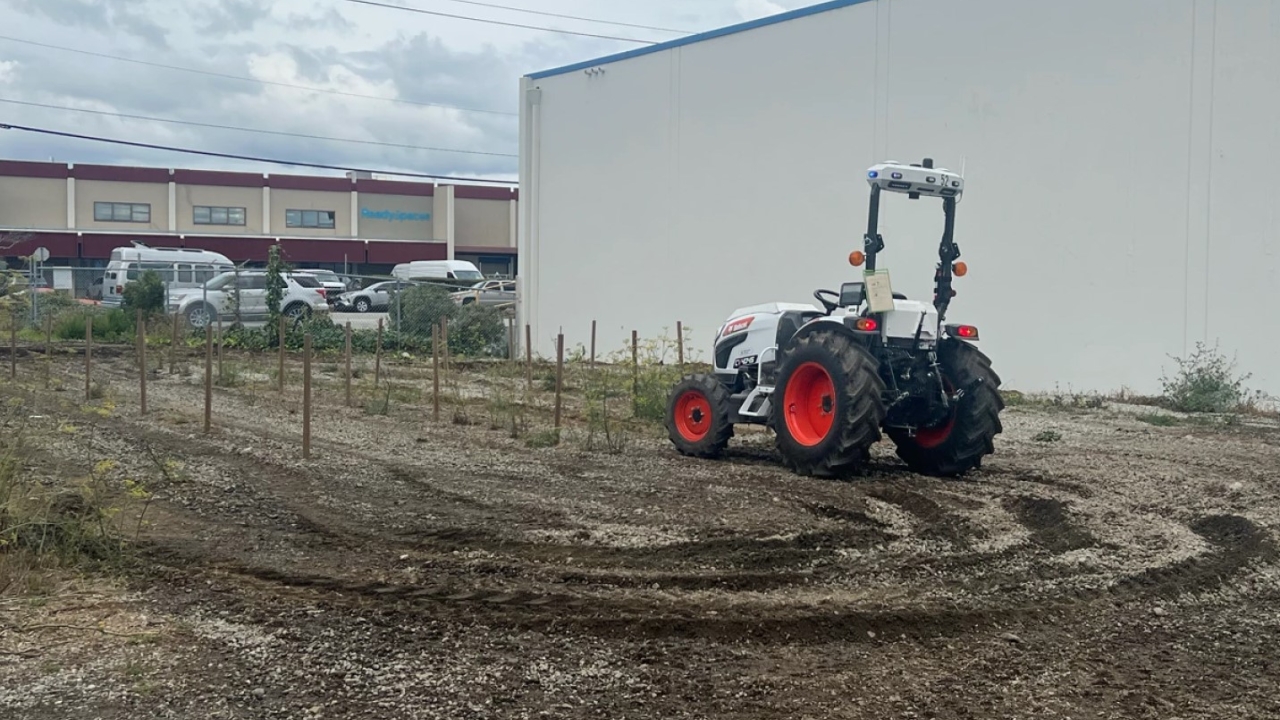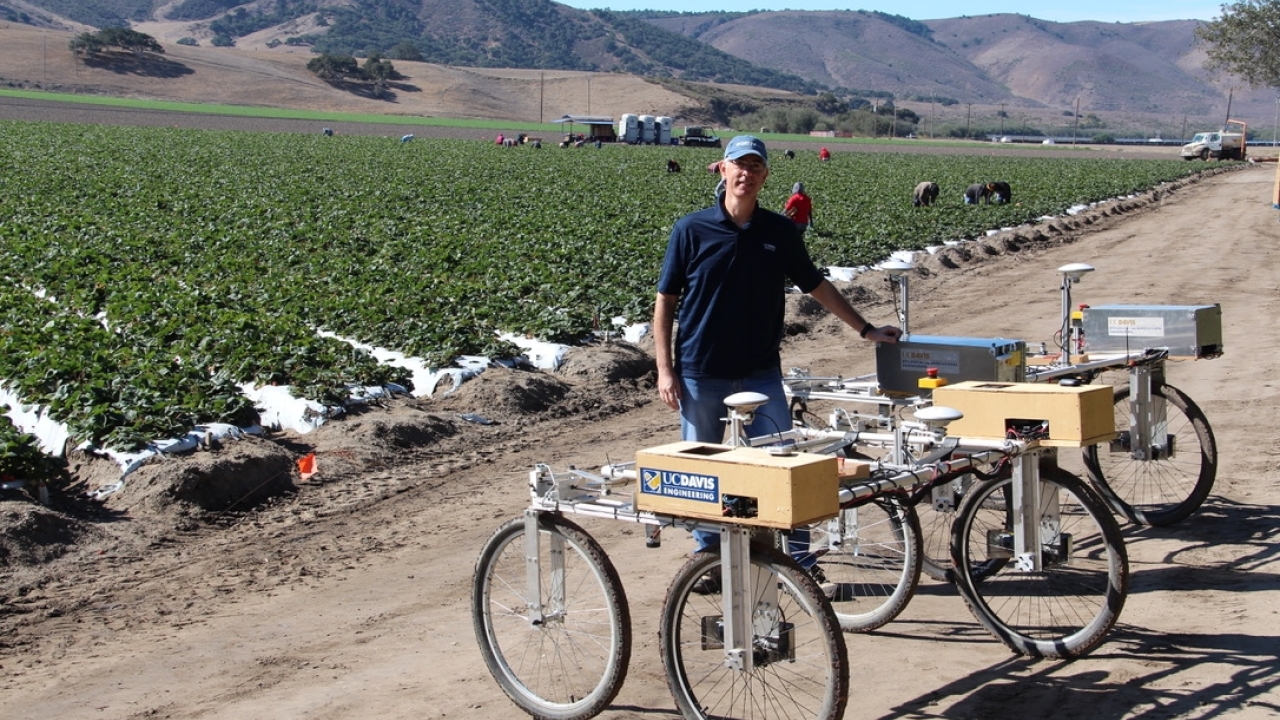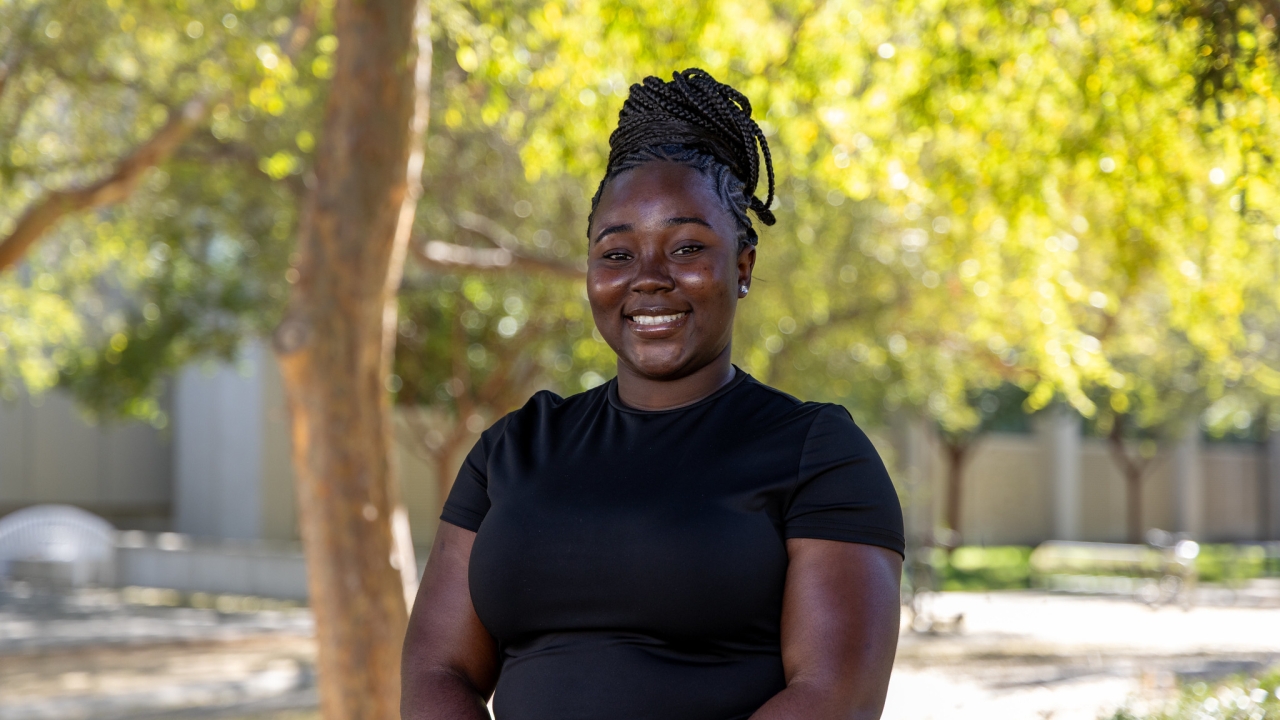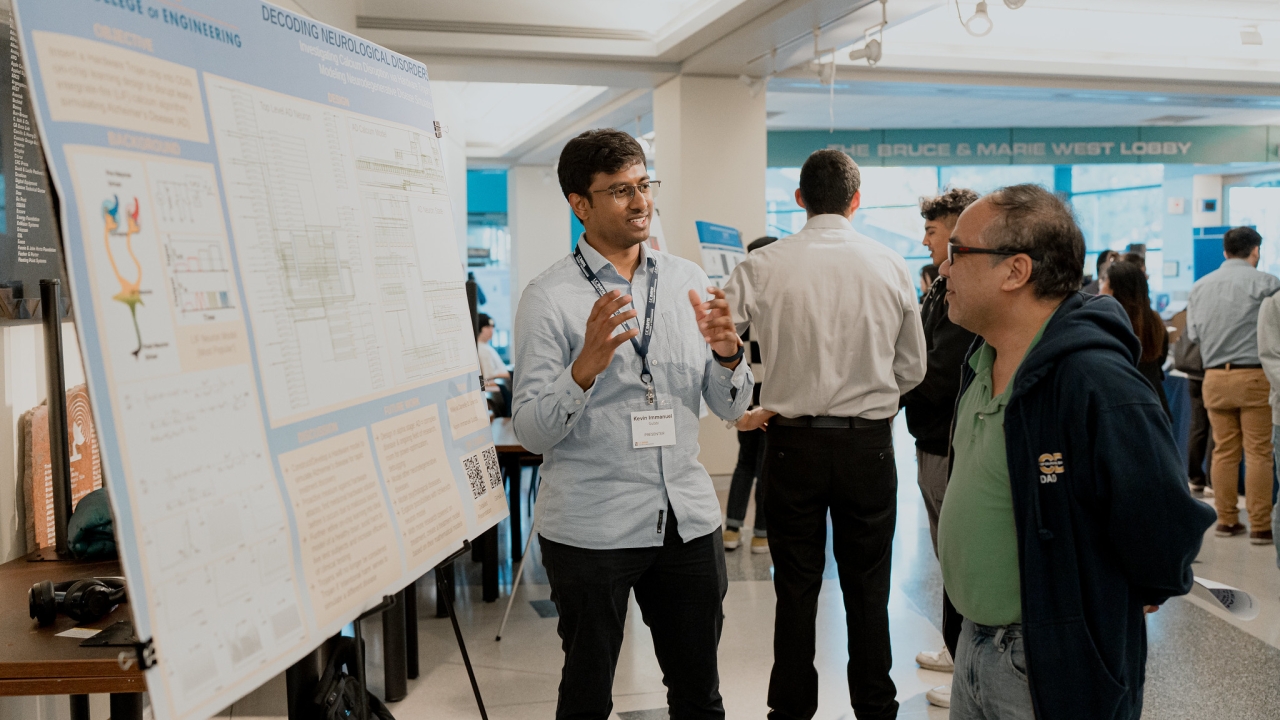
E-SEARCH Opens Doors to Higher Education
The new research-focused mentorship program unlocks the potential to pursue academic careers in engineering for undergraduates
In the spring quarter of 2023, over three dozen engineering students gathered in a UC Davis conference room with anticipation. Graduate student researchers presented their project ideas while undergraduates milled about, looking for a project that sparked their interests. These first participants in the new program, E-SEARCH, were all hoping to have a research meet-cute and find their perfect mentor-mentee match.
Initiated as part of the College of Engineering’s Next Level strategic vision for education, E-SEARCH pairs undergraduate engineering students with graduate student researchers to work on a research project of their choosing over the course of a quarter, presenting their findings at an end-of-term showcase. Through this partnership and hands-on research experience, the program aims to equip students with the tools they will need for graduate school or careers in engineering.
Thus far, E-SEARCH has held three cycles (spring and fall of 2023 and spring of 2024), with a fourth scheduled for this summer. In total, the program has supported 53 teams of students across all engineering disciplines conducting research on topics that include converting carbon dioxide on Mars into methanol, an efficient fuel source; using machine learning to detect calcium deficiencies in hydroponically grown lettuce; and training a neural network to separate the lung-specific data from X-ray images using a collection of chest X-rays and their associated lung masks.
“It’s a low-stakes, high-reward opportunity to get your foot in the door and explore research,” said Patrick Cunningham, a Ph.D. candidate in civil and environmental engineering who served as a mentor in the fall of 2023. “It offers the freedom to craft your own research plan and explore a topic of shared interest. It’s really exciting to have that flexibility in a ‘free-to-fail’ environment.”
The response has been immensely positive. Mentors said they learned how important preparation, planning, communication and listening are to having a successful research relationship.
Mentees, on the other hand, stated that participating in the program helped them make more informed decisions about pursuing graduate school, learn how to feel comfortable asking questions and become more adaptable as obstacles arise.
Isidro Valdez-Lopez, a second-year civil and environmental engineering major, was a mentee in the initial cohort last spring. He worked with civil and environmental engineering Ph.D. candidate Mandeep Singh Basson on research into Sacramento area levees, using performance-based analysis to improve their efficiency and identify how climate change-induced water fluctuations have affected their failure probability in the past.
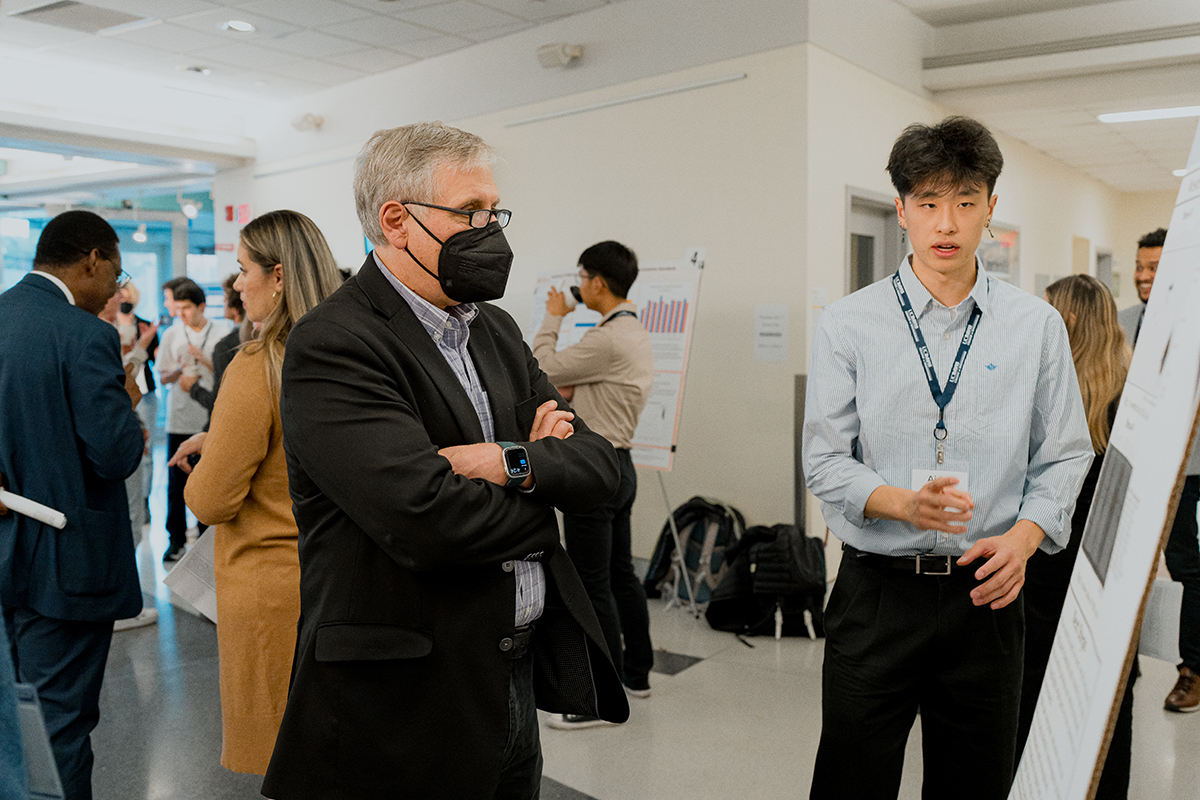
Valdez-Lopez joined the program to connect with people more academically advanced then himself. His weekly meetings and chats with Singh Basson gave him new skills in experimenting and a better outlook on math. Additionally, as an undocumented student, Valdez-Lopez has not had many chances to participate in research.
“It gave me an opportunity to expand as a UC Davis student, enabling me to take part in programs not usually offered to undocumented students,” he said. “It made me want to strive for more.”
The program is part of the college’s commitment to create opportunities for undergraduate engineering students, no matter their major or discipline, for hands-on research early in their education.
“We continually strive to prepare and empower our students to become future leaders in the field. They will use the foundational skills they learned at UC Davis to engineer a better planet, a better community for all of us,” said Dean Richard Corsi. “Learning how to research early on and knowing that a path to academia is open to them is a huge part of that.”
E-SEARCH, similar to other College of Engineering programs like LEADR and AvenueE, creates a path for undergraduates to explore the possibility of engineering research as a career by connecting with others with shared experiences. As one mentee reflected:
“One of the things I’ve learned is how much alike we are with people from higher levels of education. I think my talks with my mentor about what was going on in our lives is what really ended up motivating me to aim higher, not just in school but in life as a whole.”


